This article was co-authored by Claudia Carberry, RD, MS. Claudia Carberry is a Registered Dietitian specializing in kidney transplants and counseling patients for weight loss at the University of Arkansas for Medical Sciences. She is a member of the Arkansas Academy of Nutrition and Dietetics. Claudia received her MS in Nutrition from the University of Tennessee Knoxville in 2010.
There are 14 references cited in this article, which can be found at the bottom of the page.
wikiHow marks an article as reader-approved once it receives enough positive feedback. This article has 23 testimonials from our readers, earning it our reader-approved status.
This article has been viewed 1,809,119 times.
Most dieting and health advice focuses on losing fat, not gaining it. As such, you may be at a loss for information about how to properly put on fat. Whether you're gaining fat for health reasons or are an actor preparing for a movie role, there are safer and healthier ways to gain fat than not exercising and eating junk food. By following the correct regimen, you can gain the fat you want while maintaining your health.
Steps
Preparing to Gain Fat
-
1Visit the doctor. Before making any kind of dietary or bodily changes, you should get a full evaluation from the doctor. If you have a preexisting condition like high blood pressure or high cholesterol, your doctor may advise against gaining weight. Always take your doctor's advice seriously before making this kind of change.
- Certain medical conditions will require you to keep your weight up. Thyroid problems, digestive health issues, diabetes, and cancers may all lead to severe weight loss that may endanger your health. Being underweight can lead to health risks like a weakened immune system, anemia, hair loss, and decreased bone density.[1]
- Very high physical activity can also cause you to be underweight. If you're an athlete, gaining some fat may be good for you because it can increase your energy levels and allow you to workout for longer periods.[2]
-
2Set your goal. You'll need a clear plan as you proceed with your weight-gain plan. How much do you want to gain? By when? By figuring this out and drawing up a schedule, you'll be able to gain weight more effectively.
- Start by figuring out how much weight you want to gain. This can either be a personal goal, or one you've worked out with your doctor or dietitian. Either way, you need a concrete number in mind to start your progress.
- Remember, the basic way the body gains weight is when you take in more calories than you burn. So when drawing up your plan, you should figure out how much you need to eat every day to offset the amount of calories you burn. There are various ways to calculate this.[3] Try this link for a tool to estimate your daily calorie burn: http://www.caloriecount.com/tools/calories-burned
- Read Set Meaningful Goals for more advice on how to set and stick to a goal.
Advertisement -
3Plan to start slowly. Flooding your body with hundreds of more calories than it's used to is dangerous for your heart, blood pressure, digestion, and other body systems. Work your way up gradually to acclimate your body to the increased caloric intake. Start off with 200 extra calories a day for a week or so, then increase to 300, and so on. This will help you avoid an initial shock when you start your weight-gain regimen.
- Break your weight-gain down into stages. Determine how much you would like to gain per week or month. That way, you can ease your body into the weight increase instead of starting off too quickly.
- Just like with losing weight, gaining weight should come gradually. Gaining about 1/2 to 1 pound per week is a healthy way to go (done by adding 250 to 500 more calories to your daily intake).[4] Don't increase your daily caloric intake more than 500 calories.
-
4Draw up a meal plan. You'll have to eat much more in order to gain weight. Focus on nutrient and calorie dense foods instead of junk food. There are plenty of foods that will help you gain weight and also contain all of the nutrients you need to stay healthy.
- Plan on eating more than three meals a day. Increase your meals to five or more per day, which may include snacks throughout the day.[5]
- Make sure all your meals have a good balance. Each meal should contain carbohydrates, protein, and unsaturated fats. These three nutrients will help most with your weight gain.[6]
- Eating more often and including healthy foods in your diet will get expensive. It would also be helpful if you drew up a new budget to go along with your new diet.
-
5Plan on doing some strength training. In addition to gaining fat, gaining muscle may also lead to a weight increase. Starting a strength-training regimen will put all of those nutrients you've been eating to good use. Gaining muscle will help make sure you keep up your strength and overall health while you gain fat.[7]
Eating the Right Foods
-
1Eat foods high in unsaturated fats. Of course you'll need fat to increase your body weight, but not all fats are the same. Saturated and trans fats will help you gain weight, but they'll also increase your cholesterol and your risk of heart disease. Unsaturated fats, however, help reduce your risk of heart disease and boost your immune system. Make sure every meal you have includes some fat.[8]
- When gaining weight, you'll want to focus on these "good fats" to help beef up your body fat while still getting necessary nutrients that your body needs.[9]
- Nuts, peanut butter, fatty fish like salmon and mackerel, and avocados are all high in unsaturated fats and calories and will still provide you with essential nutrients. Include these in your meals or snack on them throughout the day.
-
2Eat whole wheat or grain carbohydrates. Carbohydrates act as energy sources for the body. If you don't burn off the energy, it will be stored as fat and help you gain weight. After fat, carbs are important contributors to weight gain, so you'll need plenty of these in your diet.[10]
- You should focus on whole wheat products for your carbs instead of white products. White products are bleached and processed, which removes most essential nutrients. Whole wheat products will give you the carbs, plus fiber, vitamins, and essential minerals.[11]
- Replace white products with whole wheat bread, pasta, and brown rice. Include carbs in all your meals to help in your weight gain.
-
3Use full-fat dairy products. Dairy is important for your diet because it contains calcium and vitamins. Most dairy products come in reduced-fat varieties, but you'll want the full-fat versions to increase your calorie and fat intake. Drink whole milk and eat cheese and yogurts made from whole milk.
- Replace sugary sodas (which have no vitamins or nutritional value) with a glass of whole milk to increase your fat intake while nourishing your body.[12]
- Keep in mind that these types are higher in saturated fats. There is, however, some evidence that full-fat dairy products actually decrease the risk of heart disease.[13]
-
4Include meat carefully in your diet. The protein and fats you get from meats are important for gaining weight. Be cautious with red meat, however. Studies conclude that excessive intake of red meat can lead to cardiovascular disease and several kinds of cancer.[14] Stick to about three to five servings a week to stay healthy.[15] The rest of the time, eat poultry for proteins and unsaturated fats.
-
5Enhance foods with calorie-rich ingredients. You can continue eating many of the foods you normally do, but make them help your weight gain by adding a few ingredients. Some healthy and effective options include:[16]
- Add hard boiled eggs to salads.
- Add cheese to sandwiches, eggs, and salads.
- Add sauces and gravies to meats.
Using Techniques to Help Gain Fat
-
1Avoid processed and refined sugar. Just because you're trying to gain fat doesn't mean you should binge on junk food all day. You need to focus on high-calorie, high-fat foods that provide vitamins and nutrients. Processed sugar contains no nutritional value and can lead to diabetes, heart disease, rotten teeth, hormone issues, and other health problems.[17]
- Cut out as much sugary food as you can. Candy, cake, cookies, and any other dessert foods are packed with sugar.
- Cut down on or avoid soft drinks altogether. A can of soda contains more sugar than your average dessert.
-
2Eat before you sleep. When you sleep, your body requires less calories. Food you eat before sleeping is more likely to be stored as fat. Take advantage of this by eating a heavy snack before bed, if combined with strength training exercises or take an afternoon nap after lunch.[18]
-
3Avoid drinking fluids for 30 minutes before eating. Fluids fill the stomach and can make you feel full prematurely. To avoid this outcome, avoid drinking anything for a half hour before your meals. This will ensure that your stomach is empty and you'll be able to eat the entire meal.[19]
-
4Use proper exercises. Just because you're trying to gain weight doesn't mean you can't still exercise. In fact, it's very unhealthy to stop moving altogether and become sedentary.[20]
- Lifting weights can hurt your fat gain if done improperly. Resistance training boosts your metabolism, which will burn more calories. Flood your body with calories after a workout to cancel out the burn and keep your weight gain up.
- Also stretch regularly. Lack of activity will make your muscles tense up and you risk losing mobility. Make sure to stretch your legs, arms, hips, and back daily to keep your body in good working order.
-
5Use protein shakes to bulk up. In addition to eating more, you can also increase your body mass with protein shakes and powder. A variety of products will provide a protein boost that will help increase your weight and muscle mass if combined with strength training exercises. Remember to use all products as directed.[21]
- Whey protein powder is a popular supplement that you can add to several types of drinks. You can blend up a smoothie using fruit, yogurt, and a few scoops of protein powder.
- There are also a variety of protein drinks and bars you can purchase. Snack on these throughout the day to give yourself extra calories.
- Read all labels when buying these products. Many are packed with added sugar, which can be harmful. Opt for products low in added sugar.
Dietary Changes and Exercises to Help Gain Fat
Expert Q&A
-
QuestionHow can I gain fat in just my arms, legs, and hips?
 Claudia Carberry, RD, MSClaudia Carberry is a Registered Dietitian specializing in kidney transplants and counseling patients for weight loss at the University of Arkansas for Medical Sciences. She is a member of the Arkansas Academy of Nutrition and Dietetics. Claudia received her MS in Nutrition from the University of Tennessee Knoxville in 2010.
Claudia Carberry, RD, MSClaudia Carberry is a Registered Dietitian specializing in kidney transplants and counseling patients for weight loss at the University of Arkansas for Medical Sciences. She is a member of the Arkansas Academy of Nutrition and Dietetics. Claudia received her MS in Nutrition from the University of Tennessee Knoxville in 2010.
Master's Degree, Nutrition, University of Tennessee Knoxville Master's Degree, Nutrition, University of Tennessee KnoxvilleExpert AnswerBody shape is determined by genetics. You will gain weight overall and cannot make your body gain fat in certain areas. However, you can do specific targeted exercises to try to build muscle in certain areas.
Master's Degree, Nutrition, University of Tennessee KnoxvilleExpert AnswerBody shape is determined by genetics. You will gain weight overall and cannot make your body gain fat in certain areas. However, you can do specific targeted exercises to try to build muscle in certain areas. -
QuestionHow much do I have to eat daily to gain weight?
 Claudia Carberry, RD, MSClaudia Carberry is a Registered Dietitian specializing in kidney transplants and counseling patients for weight loss at the University of Arkansas for Medical Sciences. She is a member of the Arkansas Academy of Nutrition and Dietetics. Claudia received her MS in Nutrition from the University of Tennessee Knoxville in 2010.
Claudia Carberry, RD, MSClaudia Carberry is a Registered Dietitian specializing in kidney transplants and counseling patients for weight loss at the University of Arkansas for Medical Sciences. She is a member of the Arkansas Academy of Nutrition and Dietetics. Claudia received her MS in Nutrition from the University of Tennessee Knoxville in 2010.
Master's Degree, Nutrition, University of Tennessee Knoxville Master's Degree, Nutrition, University of Tennessee KnoxvilleExpert AnswerIf you eat 250 – 500 extra calories per day, you will gain 1/2 pound – 1 pound per week.
Master's Degree, Nutrition, University of Tennessee KnoxvilleExpert AnswerIf you eat 250 – 500 extra calories per day, you will gain 1/2 pound – 1 pound per week. -
QuestionIs there something wrong if I eat healthy, but never grow fat?
 Claudia Carberry, RD, MSClaudia Carberry is a Registered Dietitian specializing in kidney transplants and counseling patients for weight loss at the University of Arkansas for Medical Sciences. She is a member of the Arkansas Academy of Nutrition and Dietetics. Claudia received her MS in Nutrition from the University of Tennessee Knoxville in 2010.
Claudia Carberry, RD, MSClaudia Carberry is a Registered Dietitian specializing in kidney transplants and counseling patients for weight loss at the University of Arkansas for Medical Sciences. She is a member of the Arkansas Academy of Nutrition and Dietetics. Claudia received her MS in Nutrition from the University of Tennessee Knoxville in 2010.
Master's Degree, Nutrition, University of Tennessee Knoxville Master's Degree, Nutrition, University of Tennessee KnoxvilleExpert AnswerIn this case, it is important to talk to your doctor. You can also ask for a referral to see a registered dietitian for a specific diet plan.
Master's Degree, Nutrition, University of Tennessee KnoxvilleExpert AnswerIn this case, it is important to talk to your doctor. You can also ask for a referral to see a registered dietitian for a specific diet plan.
Warnings
- Continue checking in with your doctor regularly. This will be a big change for your body, and you should make sure you're staying healthy by sticking to a fat gaining regimen.⧼thumbs_response⧽
- Gaining fat may only be helpful for people that are underweight.⧼thumbs_response⧽
- It is not possible to gain fat only in specific areas of one’s body. Weight is gained throughout the body. If you are hoping to increase only the size of your breasts, butt, or hips, keep in mind you will be increasing in size all over your body, not only in these specific places.⧼thumbs_response⧽
References
- ↑ http://www.medicinenet.com/script/main/art.asp?articlekey=52231
- ↑ http://familydoctor.org/familydoctor/en/prevention-wellness/food-nutrition/healthy-food-choices/healthy-ways-to-gain-weight-if-youre-underweight.html
- ↑ http://www.medicinenet.com/script/main/art.asp?articlekey=52231
- ↑ http://www.webmd.com/diet/how-to-gain-weight
- ↑ http://www.webmd.com/diet/how-to-gain-weight
- ↑ http://www.medicinenet.com/script/main/art.asp?articlekey=52231
- ↑ http://www.webmd.com/diet/how-to-gain-weight?page=2
- ↑ http://www.hsph.harvard.edu/nutritionsource/types-of-fat/
- ↑ http://www.mayoclinic.org/healthy-lifestyle/nutrition-and-healthy-eating/in-depth/fat/art-20045550?pg=2
- ↑ http://www.betterhealth.vic.gov.au/bhcv2/bhcarticles.nsf/pages/Weight_loss_and_carbohydrates
- ↑ https://www.hsph.harvard.edu/nutritionsource/carbohydrates/
- ↑ http://www.medicinenet.com/script/main/art.asp?articlekey=52231
- ↑ https://www.eatforhealth.gov.au/food-essentials/fat-salt-sugars-and-alcohol/fat
- ↑ http://www.health.harvard.edu/staying-healthy/cutting-red-meat-for-a-longer-life
- ↑ http://health.ucsd.edu/news/releases/Pages/2014-12-29-sugar-molecule-in-red-meat-linked-to-cancer.aspx
- ↑ http://www.medicinenet.com/script/main/art.asp?articlekey=52231
- ↑ http://www.health.harvard.edu/blog/eating-too-much-added-sugar-increases-the-risk-of-dying-with-heart-disease-201402067021
- ↑ http://www.bodybuilding.com/fun/betteru37.htm
- ↑ http://www.medicinenet.com/script/main/art.asp?articlekey=52231
- ↑ http://www.nchpad.org/403/2216/Sedentary~Lifestyle~is~Dangerous~to~Your~Health
- ↑ http://www.webmd.com/diet/how-to-gain-weight?page=2
About This Article
To gain fat, eat 250-500 more calories every day by adding things like cheese, eggs, and sauces to your meals. You can also consume more calories by drinking high-calorie protein shakes every day. While you definitely want to eat more, you should avoid eating processed and sugary foods, which can cause serious health problems. Instead, eat foods that are high in unsaturated fats as well as full-fat dairy products. On top of eating healthy, make it a goal to do strength training exercises a few days of the week so you're also putting on muscle. To learn more from our Dietitian co-author, such as how to create a meal plan and set a manageable goal, keep reading the article!



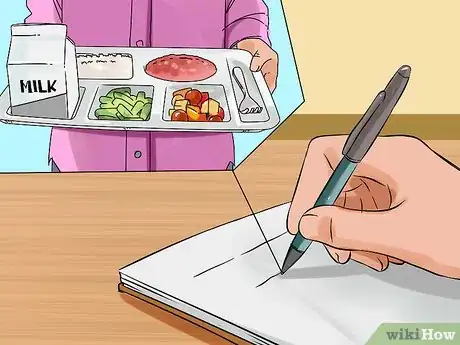

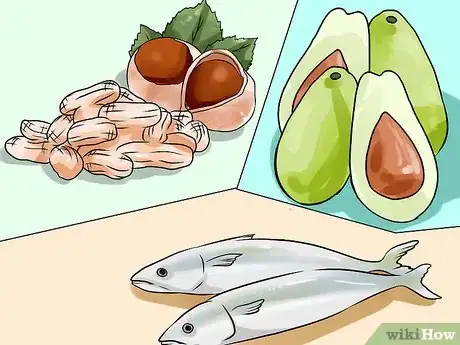

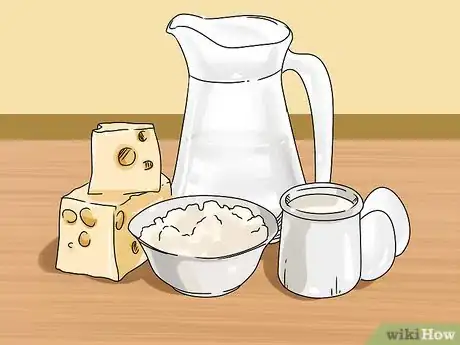
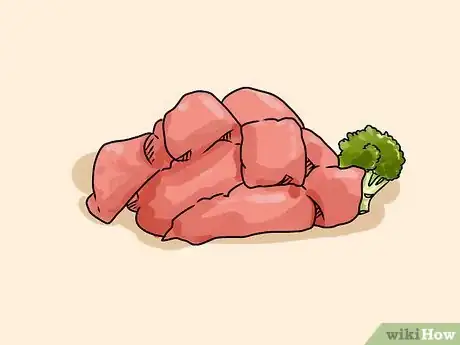

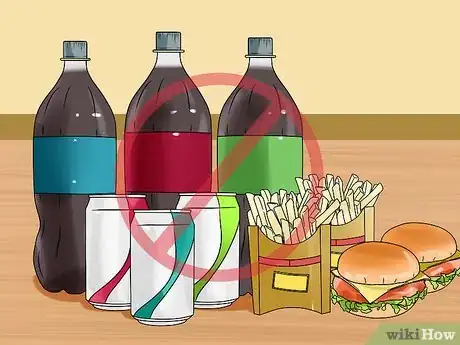
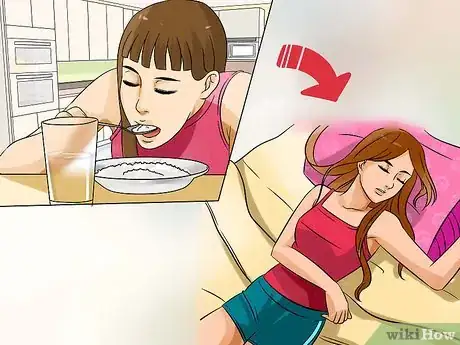


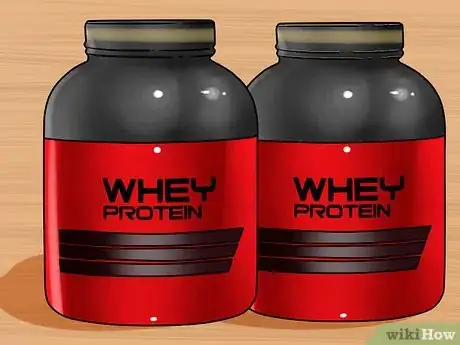
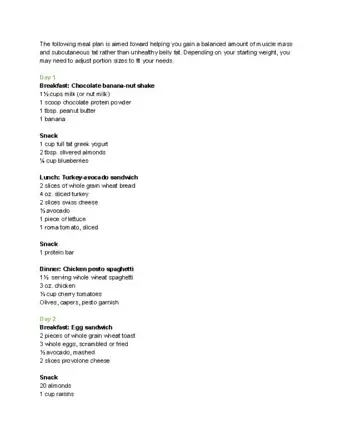
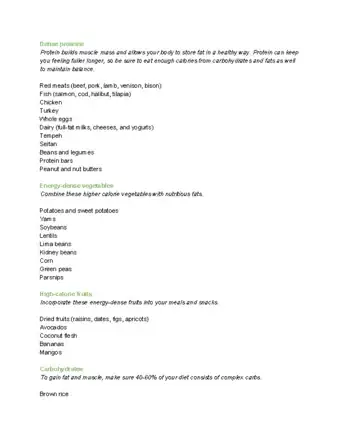


-Step-14.webp)

-Step-16-Version-2.webp)
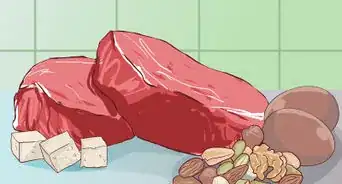





















-Step-14.webp)

-Step-16-Version-2.webp)


































